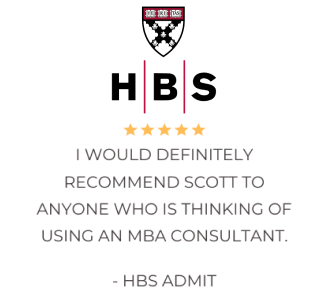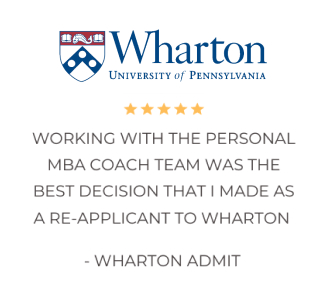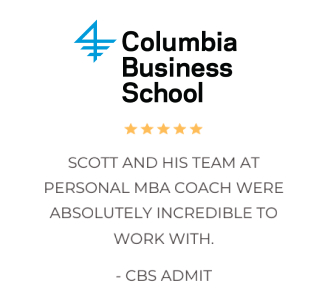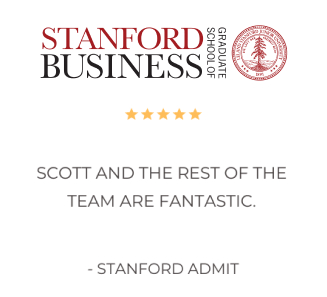Applying to an MBA program is about more than strong grades or test results. Business schools want to see skills that show readiness for leadership and long-term growth. The qualities schools value shift over time, and in 2026, the focus continues to reflect changes in the workplace, global markets, and team dynamics. Understanding which skills matter can make a real difference in shaping a strong application. We guide our clients in developing these business school skills and highlighting their strengths in a way that makes their story both clear and powerful.
Leadership With Impact
Business schools want students who can lead in a way that drives results and inspires trust. Leadership is not only about managing teams but about making choices that bring value to an organization. In 2026, schools are paying close attention to candidates who can show examples of guiding others, building accountability, and handling responsibility under pressure. Leadership is also about adapting to challenges without losing focus. Being able to guide people through change shows that a candidate has what it takes to step into bigger roles in the future. Candidates who demonstrate leadership through real actions, not just titles, are the ones who stand out most.
Strong Communication Skills
Clear communication is one of the most valued business school skills today. Programs want students who can express ideas in a way that others understand and respect. This means being a good listener as well as an effective speaker. Strong communication is not about using fancy language but about being concise, persuasive, and approachable. In 2026, schools are looking at how candidates explain their goals, tell their story, and present their ideas in group settings. Success in an MBA program often depends on how well students work in teams, and communication plays a key role in that process. Those who can adapt their message for different audiences are better prepared for the collaborative environment of business school.
Team Collaboration
Working with others is central to both business school and future leadership roles. Schools want students who can contribute to group projects, respect different viewpoints, and move a team toward results. Collaboration is not only about sharing tasks but also about building trust among peers. In 2026, programs are focusing on candidates who can balance their own ambitions with the success of the group. The ability to recognize strengths in others and bring out the best in a team is often what separates a good candidate from a great one. Students who come in with real experience working across functions or cultures tend to thrive in this environment.
Adaptability And Resilience
Change happens fast, and business schools want candidates who can handle it without losing momentum. Adaptability means being open to new ideas, willing to shift direction, and able to learn from failure. Resilience is about staying strong through setbacks and showing the discipline to recover quickly. In 2026, programs will look closely at how applicants demonstrate these traits. Candidates who can point to times they adjusted plans, responded to feedback, or overcame challenges will stand out. Business schools value students who can face the unknown with confidence and a positive approach. This skill matters not only in school but also in any career after graduation.
Global And Cultural Awareness
Business is rarely local anymore. Schools want students who can think beyond borders and work across cultures. In 2026, global awareness is a key part of what admissions teams are watching for. This means understanding how different backgrounds shape perspectives, respecting diversity, and being open to learning from others. Candidates who have lived, studied, or worked in different regions bring unique insights to classroom discussions. Those who may not have global experience can still show cultural awareness by demonstrating respect for different viewpoints and a curiosity about how others think. Programs want students who will contribute to the diverse learning environment and bring thoughtful perspectives to group work.
Analytical And Problem-Solving Skills
Strong problem solvers are always in demand. Business schools in 2026 want candidates who can break down complex challenges, think critically, and find workable solutions. Analytical skills are not limited to numbers; they also involve looking at situations from different angles and finding the best path forward. Schools will be watching for applicants who can show examples of tackling issues in creative yet practical ways. These skills often come from professional work, but they can also be built through academic projects, volunteer work, or entrepreneurial efforts. The ability to assess information, think strategically, and act with clarity will remain one of the most valuable business school skills.
Ethical Judgment And Integrity
In recent years, more attention has been placed on the values behind leadership. Business schools in 2026 want students who not only achieve results but also make choices with honesty and fairness. Integrity is about keeping commitments, being transparent, and treating others with respect. Ethical judgment means weighing outcomes carefully and thinking beyond personal gain. Programs want to admit people who can contribute positively to the school community and, later, to the organizations they lead. Applicants who can show examples of making the right choice even when it was not the easy one often make a stronger case for themselves.
Innovation And Creative Thinking
Business leaders of the future will need to think beyond traditional solutions. Innovation is about bringing fresh ideas, spotting opportunities, and building new ways of doing things. In 2026, business schools are looking for students who can combine creativity with action. It is not only about dreaming up ideas but about putting them into practice in a way that makes a difference. Candidates who can show experience with new projects, new strategies, or even small-scale creative solutions are likely to gain attention. Programs want people who can push the boundaries of how things are done and inspire others to think differently.
Emotional Intelligence
Being able to connect with people on an emotional level is a powerful skill for leaders. Emotional intelligence involves understanding both personal feelings and the feelings of others. In 2026, schools are focusing more on this ability because it helps build stronger teams, better communication, and more positive outcomes. Applicants who can show empathy, handle conflict calmly, and support those around them bring real value to the classroom. Emotional intelligence is not about being agreeable all the time but about managing emotions in a way that builds trust and respect. This skill makes candidates more effective not only as students but as leaders in their careers.
At Personal MBA Coach, we guide applicants in showing these skills in ways that admissions teams will notice. Our approach is tailored to highlight strengths, build confidence, and prepare MBA candidates for the expectations of top business schools. With years of experience, we understand how to shape stories that reflect leadership, adaptability, and the ability to grow.
If you are ready to start planning your application and want expert support in presenting your strengths, reach out to us. You can contact us to learn how we can guide you through this process with the care and strategy needed for success.



















